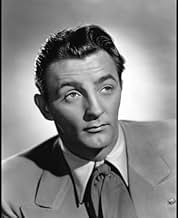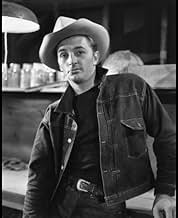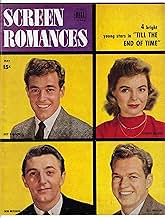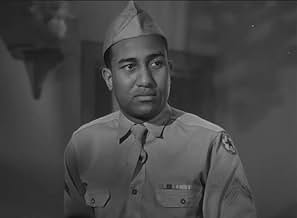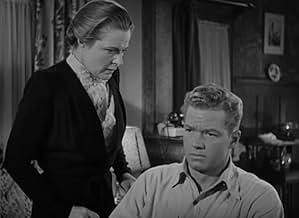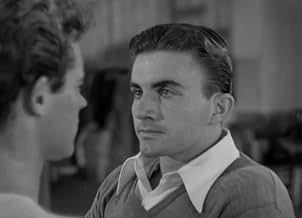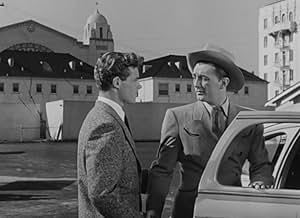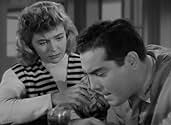IMDb RATING
6.7/10
1.7K
YOUR RATING
Drama about former WW2 Marines readjusting to civilian life and dealing with their mental and physical traumas.Drama about former WW2 Marines readjusting to civilian life and dealing with their mental and physical traumas.Drama about former WW2 Marines readjusting to civilian life and dealing with their mental and physical traumas.
- Awards
- 4 wins total
Harry von Zell
- Scuffy
- (as Harry Von Zell)
John Bailey
- Interviewer
- (uncredited)
Bobby Barber
- Arcade Game Player in Saloon
- (uncredited)
Bill Barnum
- Jackson
- (uncredited)
Dick Benjamin
- Sergeant
- (uncredited)
Paul Birch
- Marine Wanting Farm
- (uncredited)
- Director
- Writers
- All cast & crew
- Production, box office & more at IMDbPro
Featured reviews
Some jerk movie reviewer says it was to much of a tear jerker. What does he or she know. I , being a Vietnam combat vet, remember seeing the movie some years ago on TV and thinking how much I related to the story line. I can't remember much about the movie except for the fact that the filmmaker was right on when it came to trying to readjust. It ain't easy. Lots of resentment and hostility. The story may have tugged at the heart but film making has got to deal with the emotional side of ones story as well as the artful aspects of making a film. The reviewer obviously has spent no time in combat so as a result the main theme of the story escapes him or her. FIGURES
..If only to see beautiful and appealing Guy Madison in one of his earlier roles before lost to western films and TV ("Wild Bill Hickok") in the 1950s. Madison is the focal point here, portraying a returning serviceman from World War II and his subsequent adjustment to civilian life with sincerity and easy-going charm. Brad Pitt has a bit of his extremely handsome blonde, athletic looks, but not ingratiating acting prowess. (Madison is on the cover of "Hearthrob", a book about male cinema stars). Top-billed Dorothy McGuire is really support, somewhat of a matronly mis-matched love interest for the youthful Madison. A lovely score and good direction offset some dated aspects in the script. But Madison carries the day!
I would make the case that Guy Madison may be the best-looking young man to ever star in a feature film, and this is his best one. There are moments where his totally unselfconscious looks are just jaw-dropping. His acting, on the other hand, can be described charitably as "natural"; but I wasn't expecting Lawrence Olivier. Guy was an early find of legendary Hollywood agent Henry Willson, who would later "discover" a tall young man whom he renamed Rock Hudson.
After seeing the book Heartthrobs in the bookstore I was dying to see the beautiful man on the cover actually moving and speaking. Guy Madison is absolutely the most beautiful person that I have ever seen, male or female. Looking at him is truly like staring at a piece of art. It's no wonder some casting director thought to himself "the world needs to see this man 30 feet high" - the camera cannot seem to catch this guy at a bad angle. Guy is not the best actor you'll come across, but he is charming and earnest and hey his co-stars are Robert Mitchum and Dorothy McGuire so check it out! Dorothy's a fine actress, but a little matronly in this one - she's seems more like Guy's mother than a suitable love interest. If only they'd given her better ensembles - there's one scene with her in slip and much to my surprise she had a lovely little figure hiding under those awful jackets.
The year after World War II ended brought the first dramas to look at the plight of returning veterans trying to readjust to civilian norms. The Best Years of Our Lives was the big hit that year, but there were others, too. The title song in Till The End of Time, which was adapted from a Chopin polonaise, snakes through the movie wearing many skins, from saraband to Swing, constituting one of the more effective leitmotifs of 40s-movie scores. The story centers on Guy Madison, returning from the Pacific to his Los Angeles family. His parents expect the boy who left, not the man (physically, at least) who came back; they recoil when he wants to share his experiences in battle. So he starts to rebel against their sheltered and complacent life but has little idea of what to do with his own.
His love life is riven as well. One the one side there's the brash bobby-soxer next door, symbolizing what he used to be; on the other is weary war-widow Dorothy McGuire (among her most affecting roles), another survivor of the horrors of combat.
It's tempting to assume that Madison landed this meaty role (he's constantly on screen) solely because of his looks -- extraordinary, even by Hollywood standards. But he delivers a natural, if a bit bashful, performance. Only when buddy Robert Mitchum resurfaces halfway through the movie does he suffer by comparison. As a black sheep with a steel plate in his skull, Mitchum strikes the sparks that would ignite his long stardom; Madison, while pleasant and competent, comes up with nothing new and starts to grow monotonous (his career took him to TV westerns and European cheapies).
Director Edward Dmytryk (Murder, My Sweet; Back to Bataan) tones down for this leisurely character study, which remains absorbing and at times close to moving. He missteps once, very near the end, when a blast at bigotry comes flying out of left field, and he probably had to settle for the upbeat ending the studio wanted. But it was left to film noir, which dealt with similar issues obliquely (Blue Dahlia, Act of Violence, Dmytryk's own Crossfire) that probed them more profoundly.
His love life is riven as well. One the one side there's the brash bobby-soxer next door, symbolizing what he used to be; on the other is weary war-widow Dorothy McGuire (among her most affecting roles), another survivor of the horrors of combat.
It's tempting to assume that Madison landed this meaty role (he's constantly on screen) solely because of his looks -- extraordinary, even by Hollywood standards. But he delivers a natural, if a bit bashful, performance. Only when buddy Robert Mitchum resurfaces halfway through the movie does he suffer by comparison. As a black sheep with a steel plate in his skull, Mitchum strikes the sparks that would ignite his long stardom; Madison, while pleasant and competent, comes up with nothing new and starts to grow monotonous (his career took him to TV westerns and European cheapies).
Director Edward Dmytryk (Murder, My Sweet; Back to Bataan) tones down for this leisurely character study, which remains absorbing and at times close to moving. He missteps once, very near the end, when a blast at bigotry comes flying out of left field, and he probably had to settle for the upbeat ending the studio wanted. But it was left to film noir, which dealt with similar issues obliquely (Blue Dahlia, Act of Violence, Dmytryk's own Crossfire) that probed them more profoundly.
Did you know
- TriviaJean Porter and Edward Dmytryk met during the making of this film and would be married in 1948, until his death in 1999.
- GoofsOn the bus arriving at the Marine base at the beginning, California is misspelled "Caliornia."
- Quotes
Cliff Harper: You look awful!
William Tabeshaw: You look cute...
Cliff Harper: Come on in the house and we'll have a beer!
- ConnectionsFeatured in Hollywood the Golden Years: The RKO Story: Dark Victory (1987)
- SoundtracksTill the End of Time
by Buddy Kaye and Ted Mossman, based on Chopin's "Polonaise"
Music by Frédéric Chopin (uncredited)
- How long is Till the End of Time?Powered by Alexa
Details
- Release date
- Country of origin
- Language
- Also known as
- Hasta el fin del tiempo
- Filming locations
- Production companies
- See more company credits at IMDbPro
- Runtime
- 1h 45m(105 min)
- Color
- Aspect ratio
- 1.37 : 1
Contribute to this page
Suggest an edit or add missing content

